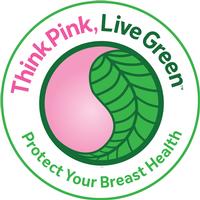A malignant cell decides to go awry and multiply to become the most dangerous of enemies: cancer. In your lifetime you will likely know someone who has died from some form of cancer. October is Breast Cancer Awareness Month, and it is synonymous with the pink ribbon campaign focusing on screening, treatment, and finding a cure. This year, the breast cancer awareness community is taking on the challenge of prevention. How can we avoid breast cancer in the first place? How can we reduce the one in eight women receiving the news “You have breast cancer?” Science so far tells us there are several clear enemies. Get to know your enemy, and in this case keep them as far away from you as you possibly can. The list is familiar, yet it’s worth repeating:
- Being overweight (having a BMI of 25% or more)
- Lack of exercise
- Hormone replacement therapy
- Smoking
- Alcohol
- Lack of a diet of fruits, vegetables, legumes, and whole grains
- Processed foods
So there you have it. Six areas you have control over—which science tells us if you don’t keep in check, you are at risk of feeding the malignant cell that can all of a sudden multiply and form into cancer.
There is also another area we can control: our environment. What we touch and use to clean, wash, and breath on a daily basis cannot be ignored. Silent Spring Institute has a comprehensive website with articles on the research done on breast cancer and the environment.
Below are links to more information on chemicals you want to avoid. Your favorite lotion, deodorant, or laundry detergent may very well have them. We can become quite loyal to our products. Their fragrance, texture, and reputation make us feel a certain way and may even make us look better. You may think, how can such a small amount do any harm? Ask instead this question: How can a tiny cell—the size of 1/10th the diameter of human hair—turn malignant and start an army that can prematurely end your life?
- ewg.org/skindeep - This environmental working group host a good site to find alternative companies in body care and cosmetic products. It’s a good starting point in learning about the wonderful independent companies out there creating safe cosmetics and body care products.
- silentspring.org - It used to be the only institute of its kind dedicated exclusively to breast cancer research. The mission has changed to research in women’s overall health, with a special focus on breast cancer. It was named after the seminal book by Rachel Carson called Silent Spring, which launched the modern environmental movement.
- breastcancerfund.org/reduce-your-risk/tips/ - The Breast Cancer Fund is the canary in the coal mine. It compiles information on the breast cancer crisis and asks the hard questions.
- SEER - The Surveillance, Epidemiology, and End Results Program of the National Cancer Institute. It’s a daunting website, but it provides key numbers and statistics on all forms of cancer.
- Health and Wellness Resource Center - One of very useful electronic databases that you have access to with your library card. It offers current videos and articles on the popular medical topics being discussed in today’s media. You will also find medical assessment tools and quizzes that can help you determine your current state of health.
- Breast Cancer Risak Assessment - This short assessment will help you determine if you have major risk factors for breast cancer. It is not a complete assessment of all risks. For a complete evaluation of your risks, see your health care provider.
Suggested Reading
No Family History: The Environmental Links to Breast Cancer by Sabrina McCormick (and documentary of the same name by Ken Burns) is a deeper look at the business of breast cancer. You will need to request the title through our interlibrary loan service.
While the following two titles below are not specifically about breast cancer, they are important contributions to the interaction between the medical community and everyday people whose lives are forever changed by cancer.
- The Emperor of All Maladies: A Biography of Cancer by Siddhartha Mukherjee - Delving into the first documented appearances of cancer thousands of years ago through the epic battles in the twentieth century to cure, control, and conquer it to a radical new understanding of its essence.
- Toms River: A Story of Science and Salvation by Dan Fagin - This is a Pulitzer Prize-winning story with local connections. The protagonist, a nurse, starts to ask questions no one wants to answer concerning industrial pollution.
More useful and informative websites with Breast Cancer information:
http://www.preventionisthecure.org
In the name of all those who passed away before their time, now is the time to go for the color green—it could make all the difference!
Have a question for Free Library staff? Please submit it to our Ask a Librarian page and receive a response within two business days.

